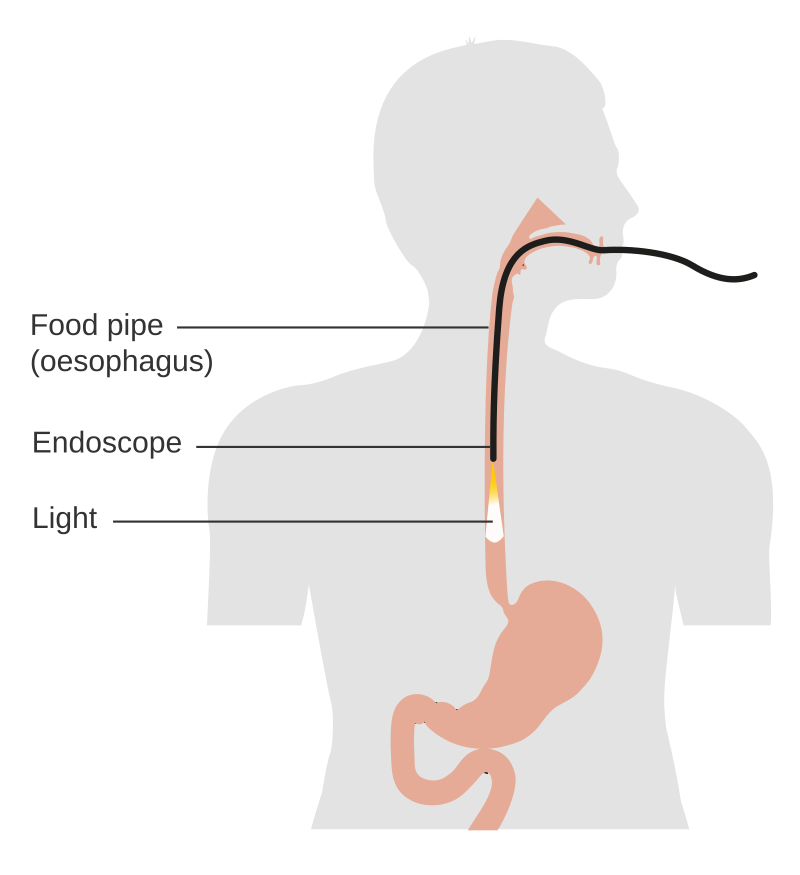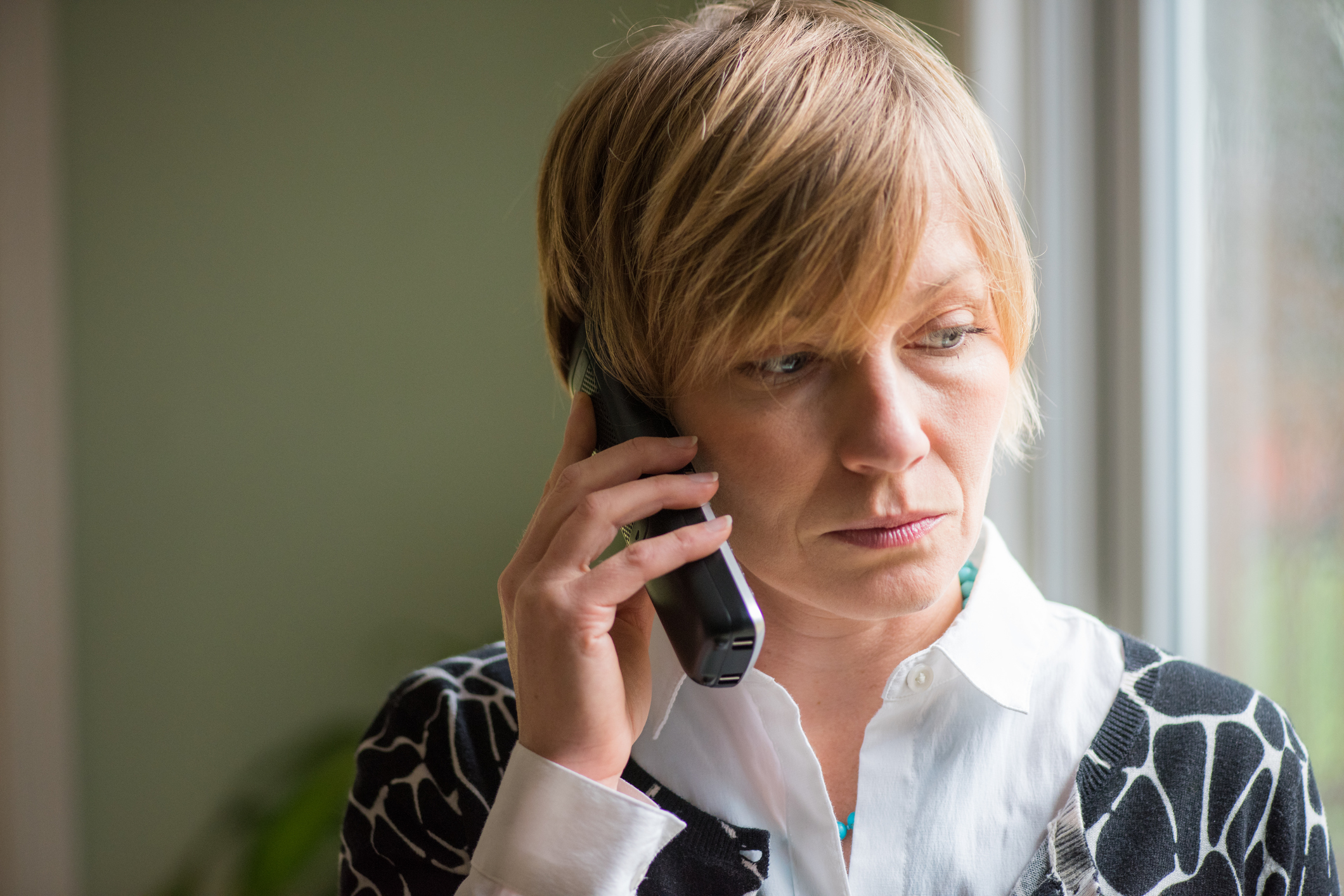A gastroscopy is a test in which a thin flexible tube is put into your oesophagus (gullet or food pipe). This tube has a camera and a light attached to it, which lets your doctor see anything unusual inside your oesophagus, stomach or duodenum (small bowel).
Gastroscopy
A gastroscopy is a test that looks at the upper part of your digestive system, such as the oesophagus (food pipe) and stomach.
What is a gastroscopy?
Gastroscopy or endoscopy?
You may hear the term 'endoscopy' used to describe this test. Endoscopy just means a scoping test (a test using a tube and a camera) where the tube goes inside your body.
A gastroscopy can also be called an oesophageal gastric duodenoscopy (OGD).

Image courtesy of CRUK / Wikimedia Commons
Before a gastroscopy
You will have to fast for a few hours beforehand. Your medical team will send you a letter with instructions on when to fast and how to prepare for the gastroscopy.
It is important to tell the medical team what medications you are taking and if you have diabetes. It is also important to let the team know if you might be pregnant.
When you arrive, a member of the team will confirm your consent and admit you for the gastroscopy. You may be asked to put on a hospital gown for the test.
If you have any questions about the test, make sure to ask them
Having a gastroscopy
Your doctor may give you a mild sedative. This will help you feel more relaxed or you may fall asleep. A local anaesthetic may be sprayed onto the back of your throat to numb it. Some people may also have a gastroscopy done under general anaesthetic. This means you are asleep for the test.
Once your throat is numb, your doctor will gently pass the tube into your oesophagus. They can look through the tube to check for any abnormal areas. Samples of tissue (biopsies) can also be taken at this time.
While the test may be uncomfortable, you should not feel pain. Let the medical team know if you are experiencing pain.
While the test itself only takes 15-30 minutes, you may be in hospital for a few hours, until you have recovered from the sedation.
After a gastroscopy
Most people have this test as a day procedure and go home on the same day.
After the procedure, you may feel very drowsy and sleepy and your throat may feel numb. Some people don’t remember having the test done.
You will not be able to eat after the test until the effects of the sedation and numbing spray have worn off.
Make sure you arrange for someone to take you home, as you’re not allowed to drive for 24 hours after having sedation.
Before you are discharged, your medical team should tell you about the procedure, including whether any biopsies were taken. You should be told about any potential side-effects. You should also be told who to contact if you have any questions or concerns.
Getting results
If biopsies were taken during your gastroscopy, these will be sent to a laboratory for further testing.
The length of time it takes to get these results can vary. It can depend on what tests were ordered and if the samples need to be sent to a laboratory in a different hospital from where you had your test. Your medical team may also want to discuss the results at a MDT (multidisciplinary team) meeting.
You can ask your medical team:
- How long before I can expect to get my results?
- Who will give me my results? For example, will it be a doctor in the hospital or my GP?
- How will my results be given? Will they be given face to face, over the phone or in a letter?
Are there side-effects/risks?
You might have a sore throat for a couple of days but this will soon clear up. If not, contact your doctor at the hospital.
You may also experience bloating/belching, as gas may have been used to open the stomach so that the medical team could see it better.
Tell your doctor if you have any problems like chest pain, bleeding or fever afterwards.
Endoscopy video
Cancer Research UK has a very helpful video on this.
Related links



Talk to a Cancer Nurse

Support Line
Our Daffodil Centres


